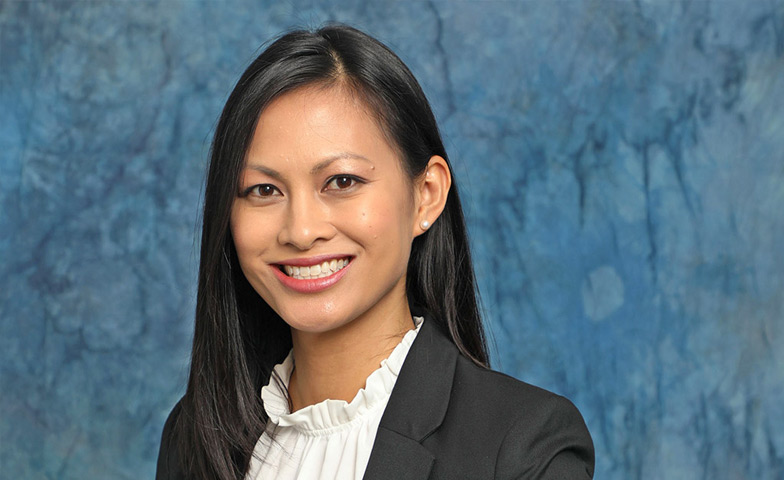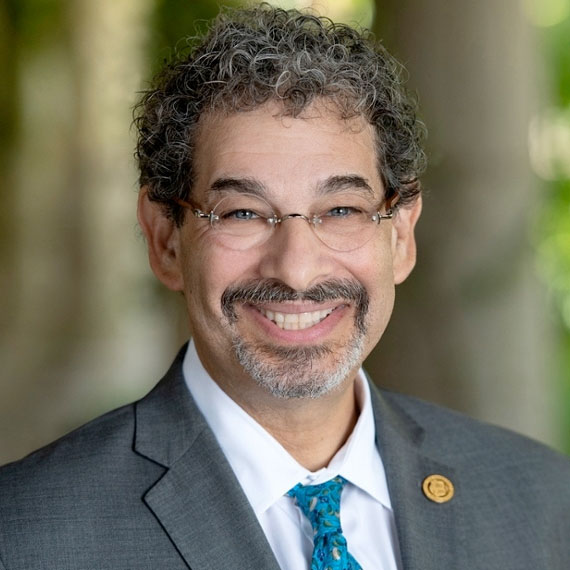Bridging the Gap Series : June 2021
Introduction from Vice Chancellor Steve Goldstein
There were 6,603 acts of violence in the United States against Asian American and Pacific Islanders (AAPI) reported to the Stop AAPI Hate database between March 2020 and March 2021, and that is only a fraction of events in that period. Indeed, a Pew Research Study reveals that 73% of AAPI have experienced racial harassment and 58% report this is more common than before the COVID-19 pandemic.
Violence and discrimination shape health disparities. In this installment of our Bridging the Gap Series that focuses on health equity, Dr. Brittany Morey, UCI Assistant Professor of Public Health, offers long-term solutions to counter the damaging health effects of racism on Asian Americans. A related editorial by Dr. Morey was recently published in the OC Register.
UCI Health Affairs is working to address the challenge of equity in how we discover, teach and heal. In July, we launched a bilingual Health Equity Contact Tracing Workshop with the OC Health Care Agency to help train a workforce of contact tracers for the county. Nearly 1,000 people participated, including from areas most heavily impacted by COVID-19, many who spoke languages other than English. The workshops followed a UCI study showing that Hispanic and Latino residents in Orange County were more likely to have COVID-19 than other races and ethnicities and that AAPI in the county had a disproportionately high risk of death when infected.
In April, the CDC joined leading medical organizations in labeling racism as a threat to public health. In May, U.S. President Joe Biden signed a Hate Crimes law. These are important steps to combat hate and intolerance and improve health. Together, we must be relentless in opposing racism and commited to bridging the gap.
By Brittany Morey

Since the start of the COVID-19 pandemic, we’ve witnessed a dramatic rise in hate crimes against Asians. The mass shooting of Asian women in Atlanta, the fatal attack on Vicha Ratanapakdee, the slashing of Noel Quintana’s face on a subway, and attacks on our Asian elders – these anti-immigrant and anti-Asian sentiments are nothing new. These tragic events are reminiscent of the 1982 murder of Vincent Chin, the Chinese American brutally murdered by two former auto workers who blamed Japan auto companies for the loss of their jobs.
While President Biden’s denouncement of anti-Asian violence and xenophobia back in March 2021 is commendable, they’re only first steps. More must be done to identify long-term solutions that can address the structural racism affecting the safety and health of Asian Americans.
First, we can start by acknowledging that even those who are not direct victims of hate crimes experience worsened health as a result. Reports of the elderly avoiding walks and families postponing trips to the grocery store in fear of anti-Asian hate crimes are widespread, and such accounts of people consistently avoiding daily activities in public spaces due to the perceived dangers of living their lives can be a mental strain not only to the people choosing to stay sheltered at home but to those who hear of these painful stories as well.
Second, we need to increase healthcare access for underserved Asian Americans. Language and culture gaps are huge barriers preventing Asian Americans from reporting hate crimes and receiving adequate healthcare, and our current healthcare system fails to sufficiently invest in healthcare providers and infrastructure that can help address those issues. For many Asian Americans, this may manifest into situations where individuals delay basic preventive healthcare check-ups in fear of potential social discomfort or discrimination, waiting until their health deteriorates to a point where it is too late.
Third, we need immigration reform. Immigration policy directly impacts public health, as federal law requires most legal immigrants to wait five years before they can qualify for federal safety net benefits, including the Affordable Care Act and nonemergency Medicaid. The problem is, even when immigrants do qualify for health benefits, they choose not to use them out of fear that it may jeopardize their legal status in the country and path to a U.S. citizenship. Popular (and harmful) sentiments about immigration and race become enshrined in immigration policy, exacerbating health disparities, and proliferating xenophobic ideas that affect Asian Americans, who are often perceived as perpetual foreigners regardless of their actual citizenship status.
Furthermore, my research suggests that stress from the long and arduous process of applying for an immigration visa, a process exacerbated by politically created immigration visa backlogs, contribute to health disparities among Asian immigrants in the U.S. We need immigration policies that are just and equitable, and that streamline the immigration application process.
Finally, accurate data that can shed light on the discrimination Asians are experiencing in housing, healthcare, education, and the workforce are essential. One of the major reasons we have not done more to address inequities for Asian groups is because we have not had the data to do so. Especially needed are data that disaggregate Asians into the various Asian ethnic subgroups. Asian subgroups are extremely diverse socioeconomically, linguistically, and culturally. Disaggregating Asian subgroup data will help to identify where the needs are in our diverse community and direct resources to those in need.
Tackling long-term solutions for systemic racism is at the core of the work that I do every day at UCI. The research on how xenophobia affects public health drives UCI’s community response to the pandemic and support of health equity right here at home. This research is especially critical in generating the strong evidence needed for program and policy decision-making to inform future action plans here in Orange County and beyond. Throughout the pandemic, I was able to support UCI where help was needed within the AAPI community and other underserved communities by training much needed COVID-19 contact tracers and begin to help the health inequities that happen in our own community. UCI continues to work with the Orange County Health Care Agency to advocate for equitable public health responses to COVID-19, and into the future beyond this pandemic. As a member of the AAPI community, UCI’s investment in my research, and in turn me, paves the way for community-driven efforts to achieve health equity. My hope is that other academic researchers build upon this foundation to further equity efforts in their own communities.
Asian Americans experience systemic racism in all sectors of society, but our needs are often overlooked. I implore you to consider how you can help to be a better ally to the AAPI communities and play your part in supporting systems that address structural issues to create opportunity for all.
About the Author
Brittany Morey, PhD, MPH, is an assistant professor of public health at University of California, Irvine’s Program in Public Health. Her research examines how social and physical environments contribute to health and health disparities among racial and ethnic minority populations, including immigrant groups.

Started in June 2020, Bridging the Gap is a series curated by Vice Chancellor Steve Goldstein, as a way to examine and share our work in closing all gaps to achieve health equity through awareness, understanding, compassion and action. You can also receive the series in your inbox by subscribing to the newsletter.
Category: Digital Publications